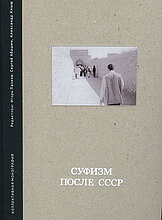Global Sufism al-Ahbash
Between transnational communication network and traditional Islam (on the example of the post-Soviet space)
In:
(Ed.)
Sufism after USSR
Mardjani, Al-Makam, Moscow, St. Petersburg, 2022
S. 244-265
The article is devoted to the study of the transnational Sufi network al-Ahbash on the example of its post-Soviet (mainly Ukrainian) segment. The first part of the study deals with the problem of classifying the al-Ahbash network, which different authors often refer to opposite camps in the Islamic community - from "radical Islamists" to a pan-Sufi organization and even an independent tariqat of Habashiyya. Based on the concept of R. Geeves, supplemented and expanded by K. Mathiesen, it is shown that al-Ahbash can be attributed to representatives of the so-called "traditional Islam." Taking into account the transnational character of the network, it can also be referred to transnational communicative networks of religious ideologies. The second part of the chapter examines the history of the formation of the network, its key features - structural-functional, social and theological. The third part is devoted to analyzing the functioning of the al-Ahbash network in Ukraine and, more broadly, in the post-Soviet space. It is shown that in many respects the support of the network on the part of Muslim diasporas is rooted in close ties between the head of the Ukrainian segment of al-Ahbash, Sheikh Akhmed Tamim (born 1956), and Sufi authorities of the Soviet period, primarily representatives of the Naqshbandiyya and Qadiriyya. Also within the framework of the concept of transnational communicative networks of religious ideologies it is shown that al-Ahbash is a type of politically conformist network.
